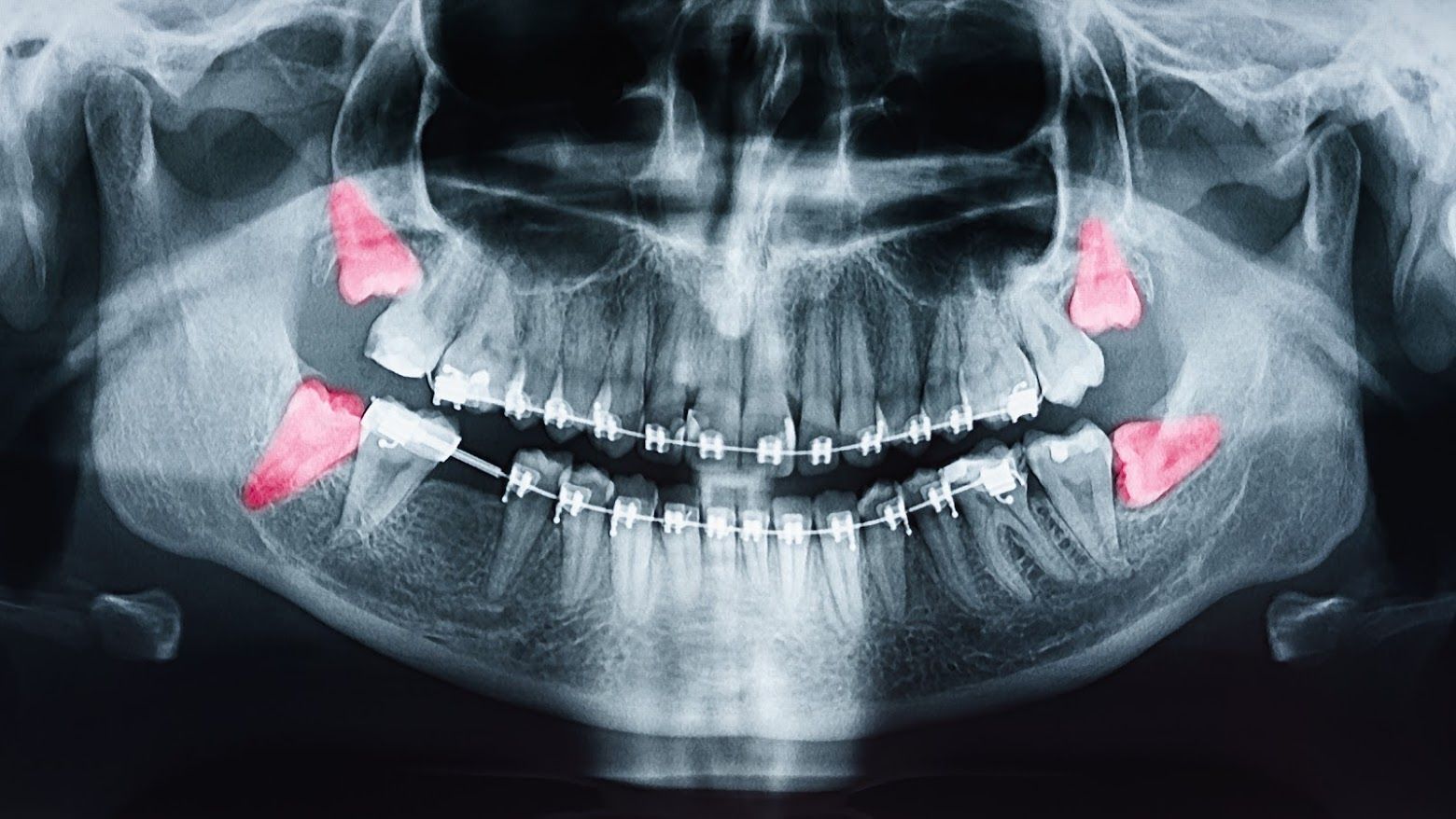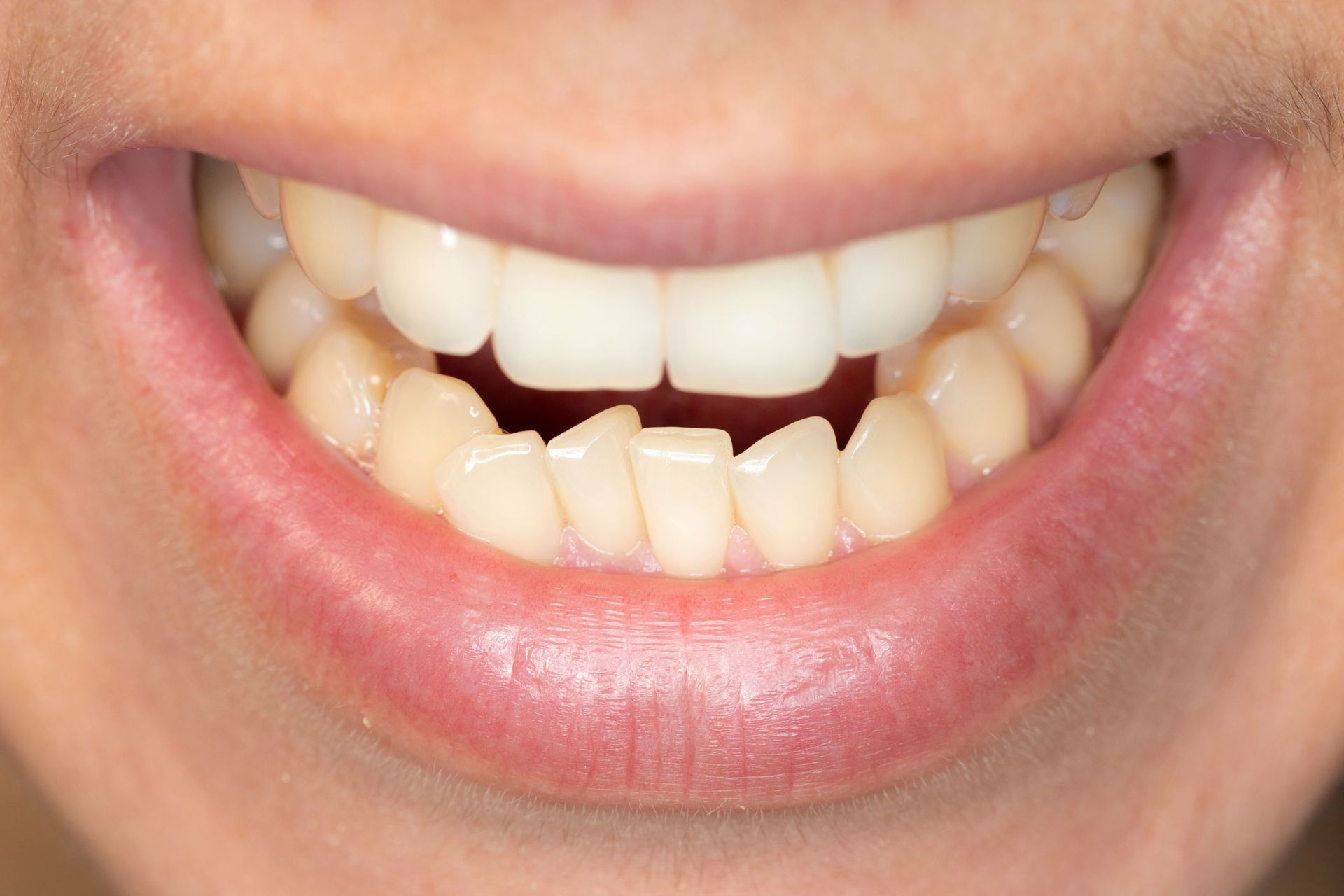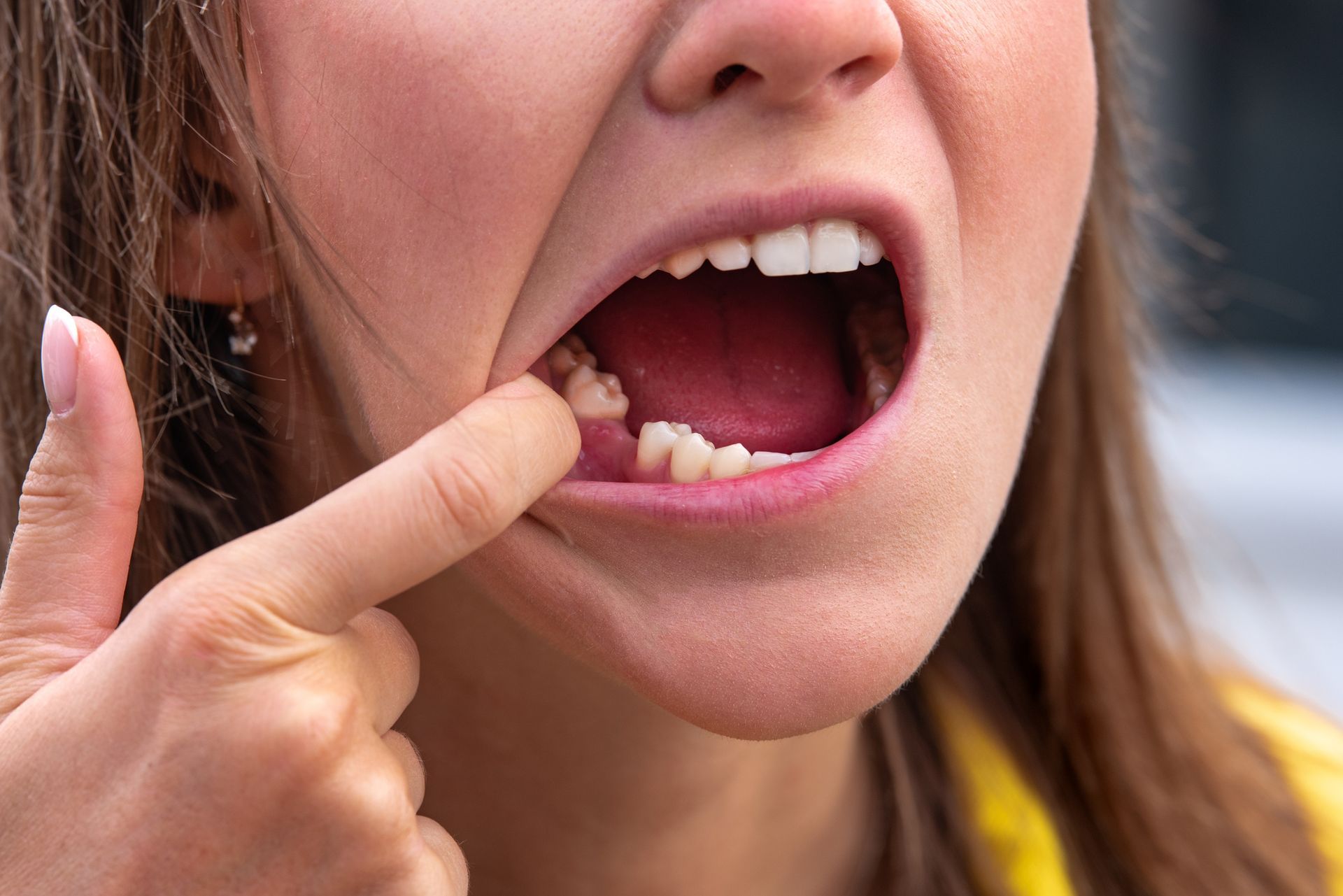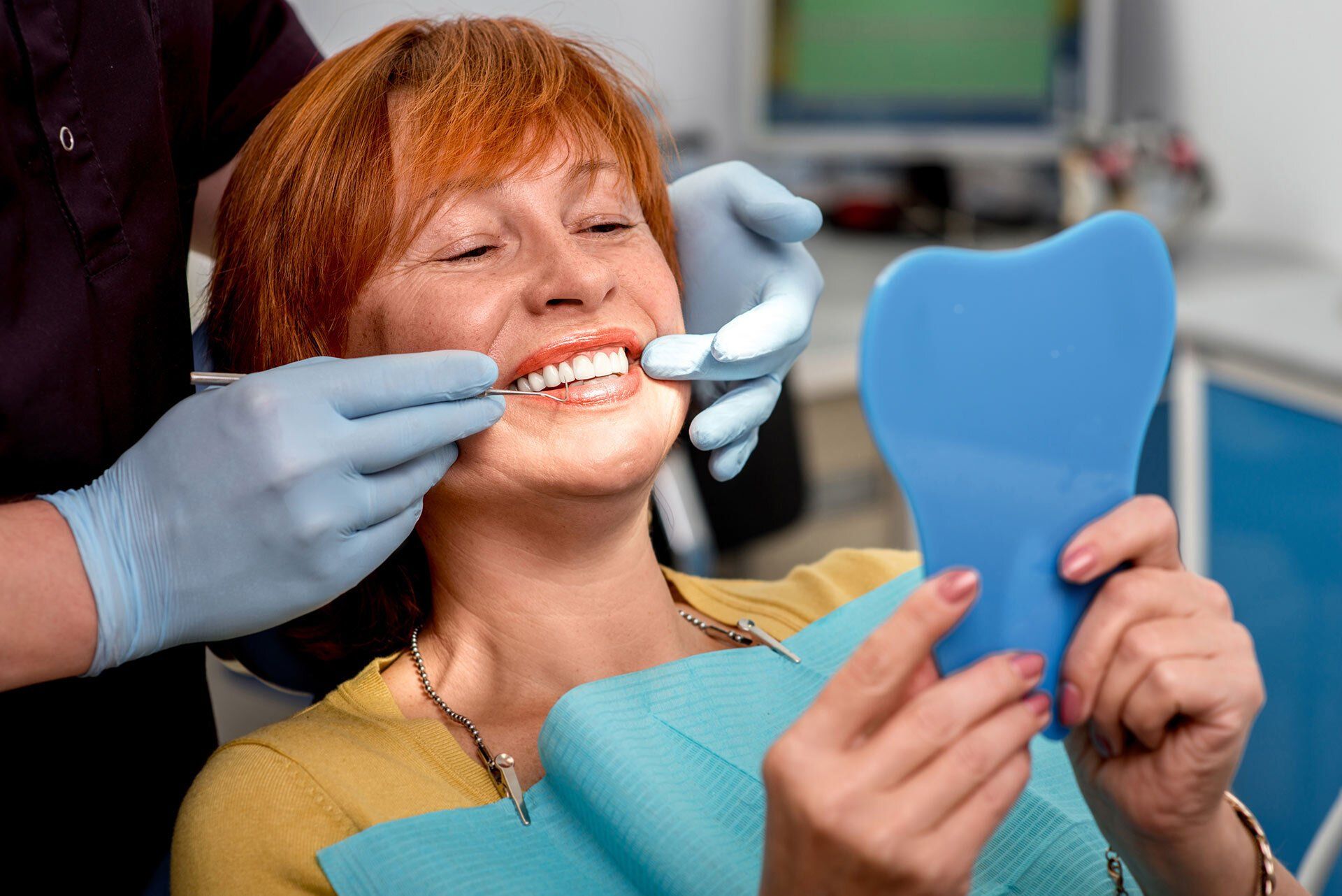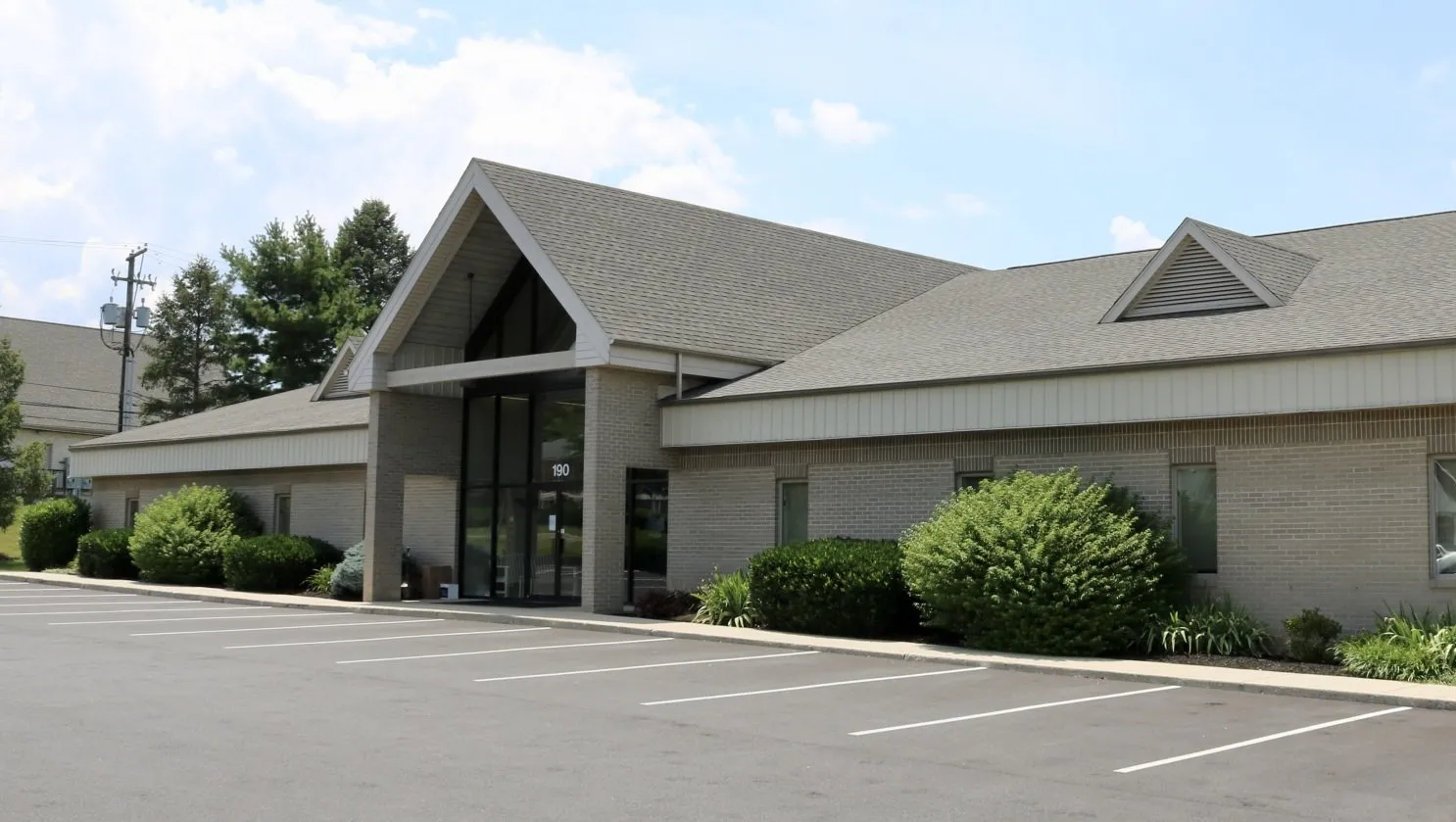Lancaster Office
Hershey Office
Lititz Office
Dental Nightguards — The Key to Solving Your Painful Dental Problems?
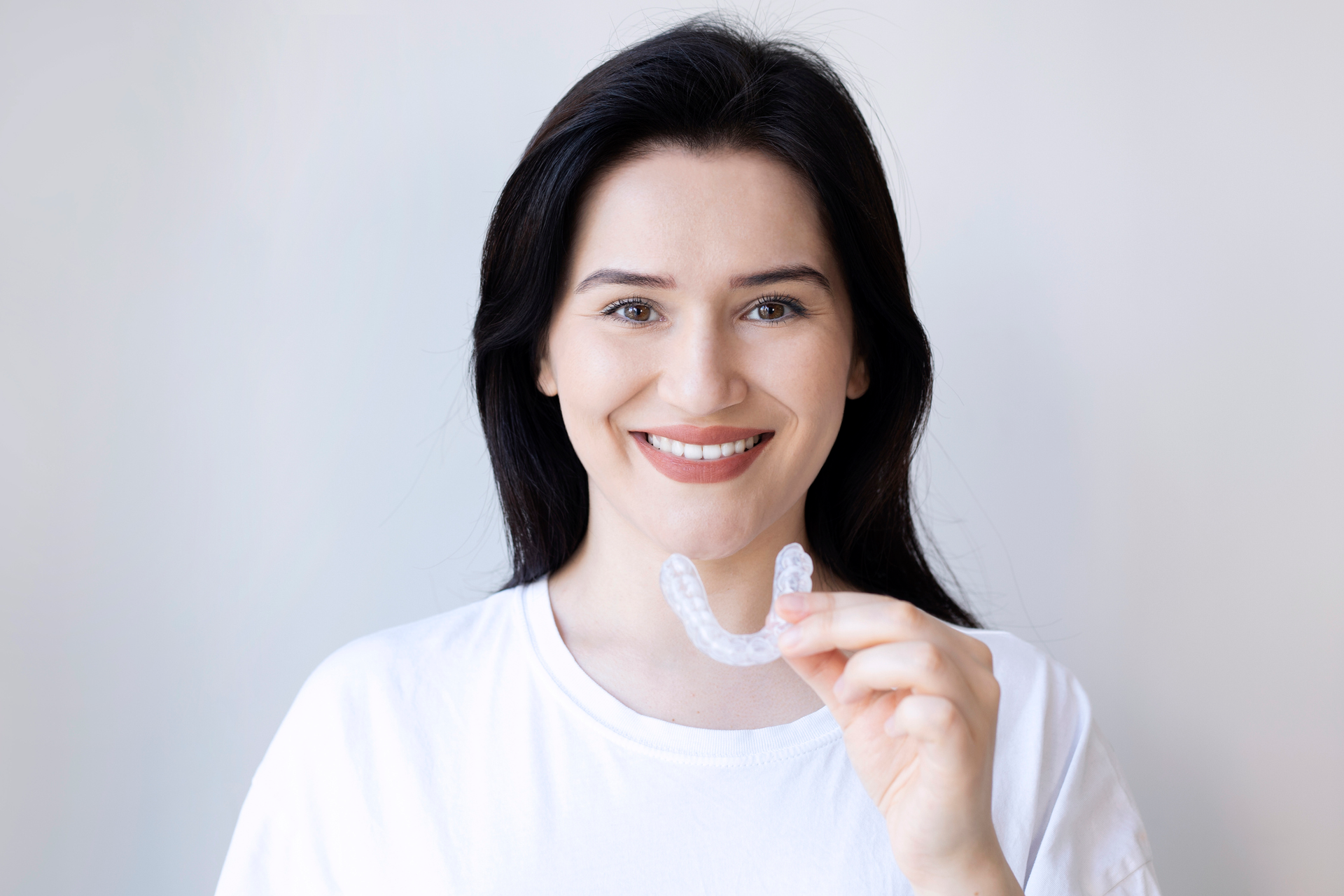
The dental nightguard - this little-known, cost-effective appliance can help with a range of symptoms that you may be experiencing. Many questions come to mind when considering making an investment. What is a dental night guard? What does it treat? Should I consider wearing a dental nightguard? Is my mouth pain or jaw pain something that would be helped by a nightguard? What should you know prior to having one made? Explore answers to a few of your most important questions.
What Is a Dental Nightguard?
A dental nightguard is a hard acrylic device that snaps over your teeth. It is lightweight and, when custom-fitted to your teeth, is generally very comfortable. The purpose of a dental nightguard is to prevent your upper and lower teeth from coming into contact with each other (maximum intercuspation), which for some patient’s can lead to heavy grinding and clenching. This heavy clenching can lead to facial/muscle pain and TMD (temporomandibular disorder). These ailments make everyday tasks such as chewing and speaking more difficult. When the nightguard is inserted, it provides a firm stop when the teeth are attempting to come together, makes biting forces less and providing reduction of stress in the TMJ.
While “boil and bite” nightguards can be purchased at the pharmacy in the dental aisle, a custom nightguard made by your dentist is recommended. Your dentist will take an impression/mold of your teeth and then a laboratory will fabricate the prosthesis. A try-in with equilibration (making sure that all of the teeth equally contact the guard when biting) will then take place prior to regular use. Then, you simply pop in the device at night and remove it during the day. It is cleaned with common, over-the-counter products each day.
Why Wear a Dental Nightguard?
A nightguard is often an effective treatment for two main conditions. The first is known as bruxism. This is the dental term for the clenching of the teeth, which can result in worn or cracked teeth over time. The root causes of bruxism are numerous (most commonly stress) and patients often develop a number of symptoms. These include headaches, neck pain, sore or tender dentition, and jaw/muscle pain. When left untreated, the teeth eventually weaken and can fracture to the point of unrepair. Restorations (fillings) and crowns (caps) can also fracture and wear much more easily.
Another common reason for nightguard use is to manage temporomandibular joint disorder (TMD). When the temporomandibular joint (TMJ) does not function normallly, persistent jaw pain can result. When left unchecked, the result can be painful and even debilitating, affecting a patient’s ability to chew and talk. Symptoms include jaw pain focused at the joint itself, ear pain, popping and clicking with accompanying pain, headaches, and open and closed lock of the jaw. Most oral surgeons upon evaluation of a patient will always pursue conservative therapies first (soft diet, heating pad, and OTC anti-inflammatories). One of the least invasive and simplest treatments of TMJ pain can be a correctly fabricated nightguard that has been equilibrated.
Will My Insurance Cover My Nightguard?
Each insurance policy is different, so there is no universal answer to this question. Some insurance carriers do help cover the cost of a custom-fitted dental nightguard if the device is deemed medically necessary. It is recommended that you contact your insurance carrier prior to having a nightguard made or check with the dentist that is fabricating the device.
Is a Night Guard Difficult to Wear?
As with other appliances, a dental nightguard does take some getting used to. Your dental provider may suggest spending some time wearing the nightguard during normal daily activities in order to become accustomed to it. The most important thing is that you stay committed to its use. Wearing the nightguard only several days a week or for only half of the evening, will not provide you the relief you are hoping for. No nightguard should ever hurt your mouth when you are wearing it. Because it is custom fitted, it should passively fit over your teeth. If you are having pain, you should return to your dentist for any adjustments that are necessary. Once you are used to wearing it, the nightguard is generally quite comfortable. And as you gain much-needed relief from your symptoms caused by bruxism or TMD, the dental nightguard will become a normal part of your evening routine. Your bite (the way your teeth touch naturally) should not be altered when the device is not in your mouth.
Can You Use an OTC Nightguard?
There are two main types of dental nightguards: custom and over-the-counter (OTC). The OTC nightguards that you buy at the pharmacy are a cheaper alternative but can easily break and often have some give to them that can increase a patient’s habit of clenching, which in turn will increase the facial pain. While this can be a starting point, many patients end up pursuing a more custom approach to find better relief.
Although they are more of an investment, custom-fitted nightguards are superior. If you are seen at Conestoga Oral Surgery for a consultation regarding your facial pain, you will likely be provided with a prescription for a nightguard that you can then provide to your general dentist.
Where Can You Learn More?
Jaw pain/TMJ pain is often complex and requires the expertise of your general dentist and a specialist like an oral surgeon. Your mouth pain may be caused by a series of easily reversable causes. If you suspect you have a problem like bruxism or TMD talking with your dentist or scheduling a consultation at Conestoga Oral Surgery is recommended. A nightguard in addition to other recommended conservative therapies may help you with your condition and help you avoid any surgery, which is usually a last consideration for those with chronic facial pain.
- Mon - Thu
- -
- Friday
- -
- Sat - Sun
- Closed

